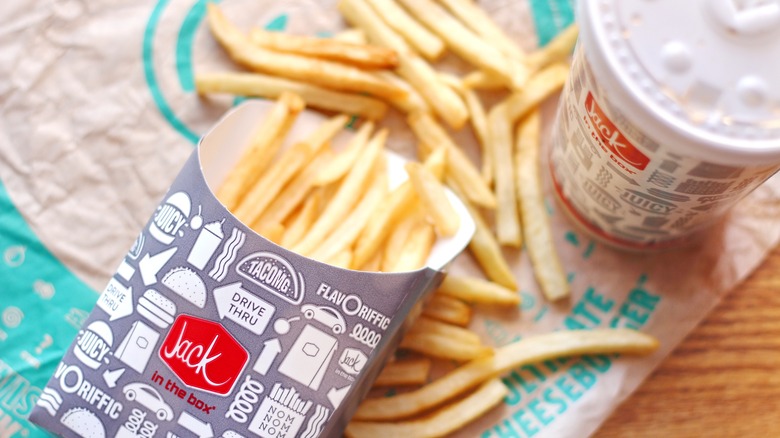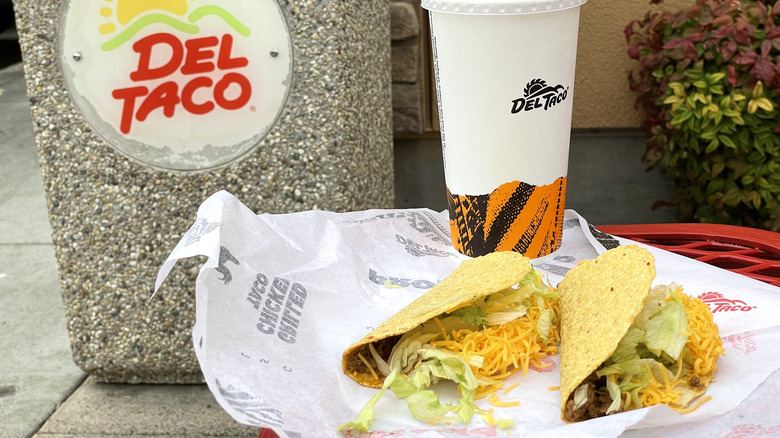Jack In The Box Is Selling Nearly Half Of Its Del Tacos
Jack in the Box fans, buckle your seatbelts. The beloved fast food chain has been making some major changes to its businesses lately. Last month, per a press release, Jack in the Box launched a drive-thru-only restaurant model in Oklahoma. In April, the chain rolled out robot employees that could make fries and fill drink cups. Now, the company is back in the headlines with another big change. Earlier this week, Jack in the Box announced that it would be selling at least 250 (nearly half) of its Del Taco restaurants to franchisees, via QSR.
Last March, Jack in the Box bought Del Taco for about $585 million. At the time of the purchase, CEO Darin Harris named growth opportunities as the motivation behind the move, saying both Jack in the Box and Del Taco would "benefit from a stronger financial model." Indeed, it looks like these hopes have since come to fruition. The merger gave the brand over 2,800 total stores across 25 states, owned by both corporate and individual franchisees. But, far more Jack in the Box stores were owned by franchisees — an imbalance the company now says it plans to rectify.
A move toward refranchising
Jack in the Box CEO Darin Harris says the decision is a move toward a multi-brand asset-light company, per QSR. In an asset-light business model, corporations try to invest minimal capital in tangible investments like brick-and-mortar restaurants. Instead, with franchisees supplying the money for physical Del Taco stores, the Jack in the Box company gets a high return for little initial investment.
Since the brand merger, it's already been a lucrative year for the company. Last year, QSR named Del Taco as No. 42 of the 50 Biggest Fast Food Chains in America, with $931 million in annual sales generated by 600 drive-thru stores. In fiscal Q3, Jack in the Box reported a whopping 47.8% increase in year-over-year revenue for a total of $398.3 million.
Another key reason behind the decision, says Harris, is that franchisees will be fronting royalty fees to corporate Jack in the Box. According to franchise development company Fransmart, royalty fees operate the same way in franchising as they do when attached to books or music — they pay for the continued use of another's intellectual property. Just as a television show has to pay royalty fees to a musician every time it plays their song, franchisees must continually pay a percentage of their sales to the corporate for the use of the "Del Taco" operating name. This additional, consistent revenue stream might be just the thing Jack in the Box needs to continue its expansion across the fast-food world.

